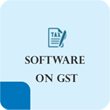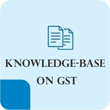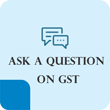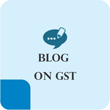Place of supply of services in case of IGST
Significance of place of supply in IGST
According to section 4 of the act there shall be levied a tax called the Integrated Goods and Services Tax on all supplies of goods and/or services made in the course of inter-State trade or commerce at the rate specified in the Schedule to this Act and collected in such manner as may be prescribed. As per section 3(1) of the act supply of goods / services in the course of inter-state trade or commerce means any supplies where location of supplier and place of supply are in different state. Hence, IGST would be levied and payable only when place of supplier and place of supply are in different state.
Problem in identification of place of supply in case supply of services
Services being intangible pose problems w.r.t determination of place of supply mainly due to following factors:
- The manner of delivery of service could be altered easily. For example telecom service could change from mostly post-paid to mostly pre-paid; billing address could be changed, billers address could be changed, repair or maintenance of software could be changed from onsite to online; banking services were earlier required customer to go to the bank, now the customer could avail service from anywhere;
- Service provider, service receiver and the service provided may not be ascertainable or may easily be suppressed as nothing tangible moves and there would hardly be a trail;
- For supplying a service, a fixed location of service provider is not mandatory and even the service recipient may receive service while on the move. The location of billing could be changed overnight;
- Sometime the same element may flow to more than one location, for example, construction or other services in respect of a railway line, a national highway or a bridge on a river which originate in one state and end in the other state.
- Similarly a copy right for distribution and exhibition of film could be assigned for many states in single transaction or an advertisement or a programme is broadcasted across the country at the same time.
- An airline may issue seasonal tickets, containing say 10 leafs which could be used for travel between any two location in the country.
- The card issued by Delhi metro could be used by a person located in Noida (State Uttar Pradesh), or Delhi or Faridabad (State Haryana), without the Delhi metro being able to distinguish the location or journeys at the time of receipt of payment.
- Services are continuously evolving and would thus continue to pose newer challenges. For example 15-20 years back no one could have thought of DTH, online information, online banking, online booking of tickets, internet, mobile telecommunication etc.
The following provisions of shall apply to determine the place of supply of services
General Provisions 1 – Supplied to registered person:
The place of supply of services, except the services specified in sub-sections (4), (5), (6), (7), (8), (9), (10), (11), (12), (13), (14) and (15), made to a registered person shall be the location of such person.
General Provisions 1 – Supplied to un-registered person:
The place of supply of services, except the services specified in sub-sections (4), (5), (6), (7), (8), (9), (10), (11), (12), (13), (14) and (15), made to any person other than a registered person shall be
- the location of the recipient where the address on record exists, and
- the location of the supplier of services in other cases.
Thus, if no specific provision in law exists, the place of supply of services shall be the location of recipient or location of supplier. However, some specific legal fictions are provided in law with respect to some services as summarized below:
Case study:
The place of supply in relation to immovable property is the location of immovable property. Suppose a road is constructed from Delhi to Mumbai covering multiple states. What will be the place of supply?
Where the immovable property is located in more than one State, the supply of service shall be treated as made in each of the States in proportion to the value for services separately collected or determined, in terms of the contract or agreement entered into in this regard or, in the absence of such contract or agreement, on such other reasonable basis as may be prescribed in this behalf. (The Explanation clause to section 6(5) of the IGST Act)
What would be the place of supply of services provided for organizing an event, say, IPL cricket series which is held in multiple states?
In case of an event, if the recipient of service is registered, the place of supply of services for organizing the event shall be the location of such person.
If the recipient is not registered, the place of supply shall be the place where event is held.
Since the event is being held in multiple states and a consolidated amount is charges for such services, the place of supply shall be taken as being in each state in proportion to the value of services so provided in each state. (The Explanation clause to section 6(8) of the IGST Act)
What will be the place of supply of goods in respect of transport of goods by courier?
In case the recipient is registered, the location of such person shall be the place of supply.
However, if the recipient is not registered, the place of supply shall be the place where the goods are handed over for transportation.
What will be the place of supply if a person travels from Mumbai to Delhi and back to Mumbai?
If the person is registered, the place of supply shall be the location of recipient.
If the person is not registered, the place of supply for the forward journey from Mumbai to Delhi shall be Mumbai, the place where he embarks. However, for the return journey, the place of supply shall be Delhi as the return journey has to be treated as separate journey. (The Explanation clause to section 6(11) of the IGST Act)
Suppose a ticket/ pass for anywhere travel in India is issued by M/s Air India to a person. What will be the place of supply?
In the above case, the place of embarkation will not be available at the time of issue of invoice as the right to passage is for future use. Accordingly, place of supply cannot be the place of embarkation. In such cases, the default rule shall apply. (The proviso clause to section 6(10) (b) of the IGST Act)
What will be the place of supply for mobile connection? Can it be the location of supplier?
The location of supplier of mobile services cannot be the place of supply as the mobile companies are providing services in multiple states and many of these services are inter-state. The consumption principle will be broken if the location of supplier is taken as place of supply and all the revenue may go to a few states where the suppliers are located.
The place of supply for mobile connection would depend on whether the connection is on postpaid or prepaid basis.
- In case of postpaid connections, the place of supply shall be the location of billing address of the recipient of service.
- In case of pre-paid connections, the place of supply shall be the place where payment for such connection is received or such pre-paid vouchers are sold.
- However if the recharge is done through internet/e-payment, the location of recipient of service on record shall be the taken as the place of service.
A person in Goa buys shares from a broker in Delhi on NSE (in Mumbai). What will be the place of supply?
The place of supply shall be the location of the recipient of services on the records of the supplier of services. So Goa shall be the place of supply.
A person from Mumbai goes to Kullu-Manali and takes some services from ICICI Bank in Manali. What will be the place of supply?
- If the service is not linked to the account of person, place of supply shall be Kullu i.e. the location of the supplier of services.
- However if the service is linked to the account of the person, the place of supply shall be Mumbai, the location of recipient on the records of the supplier.
A person from Gurgaon travels by Air India flight from Mumbai to Delhi and gets his travel insurance done in Mumbai. What will be the place of supply?
The location of the recipient of services on the records of the supplier of insurance services shall be the place of supply. So Gurgaon shall be the place of supply. (proviso clause to section 6(14) of the IGST Act)






